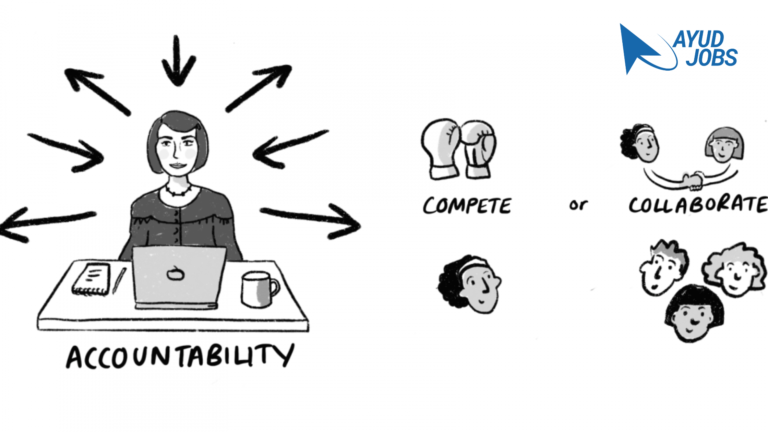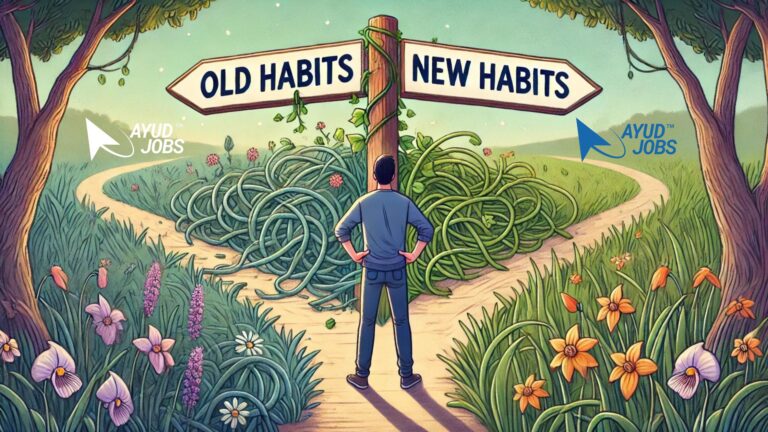Respect Through Effort Valuing Every Role in Society
Introduction
Respect is a fundamental aspect of human interactions. Whether in personal relationships, professional environments, or social circles, respect shapes the way people perceive and treat each other. A common misconception about respect is that it is automatically linked to status, job titles, or social positions. However, true respect should be based on the effort people put into their work, regardless of the job they do. The value of an occupation lies not in its title, but in the dedication, commitment, and integrity with which the job is carried out.
In this blog, we will explore why respect should be effort-based, not title-based, and how this mindset can transform individual lives and society. We will also provide real-life examples and insights to encourage people to appreciate efforts across all occupations.
Why Respect Should Be Based on Efforts
Respect is not something that can be demanded—it is earned. People often judge others based on superficial things like job titles, positions, or financial success. However, the true worth of an individual should be measured by their dedication, hard work, and the impact they have on the community.
1. Everyone’s Effort Matters
The world functions because of the efforts of people in all kinds of jobs. From the janitor who keeps public spaces clean to the CEO who makes high-level decisions, every role plays a part in keeping society running smoothly. By focusing on the effort rather than the position, we can create a more inclusive society where everyone’s contribution is valued.
2. Effort Shows Character
A person’s work ethic, attitude, and dedication are indicators of their character. Hard work and commitment in any job demonstrate traits like responsibility, resilience, and perseverance. These qualities are worthy of respect, regardless of the specific role. Transitioning to an effort-based view of respect fosters a more compassionate and understanding society.
The Dangers of Respecting Only Titles
Respecting only titles can lead to a skewed perspective on life and work. When we base respect on superficial criteria such as job titles or income levels, we undervalue the efforts and contributions of many hardworking people. Here’s why it’s problematic:
1. It Creates Hierarchies
If respect is only given to those in higher positions, it creates unnecessary hierarchies and divisions. People who work in less prestigious jobs may feel devalued, which can affect their self-esteem and productivity. Transitioning to a mindset where effort is respected encourages equality and a sense of unity.
2. It Encourages Superficial Judgments
Judging someone based solely on their job title overlooks their personal qualities and contributions. This mindset limits our ability to truly connect with others and appreciate their unique skills. By focusing on effort, we gain a deeper understanding of others and can build more meaningful relationships.
How Effort-Based Respect Brings Positive Change
When respect is linked to effort, it can have far-reaching effects on individuals and society. Let’s explore some of the benefits of adopting this mindset:
1. Boosts Morale and Motivation
When people feel that their efforts are recognized and respected, it boosts their morale. They feel valued and appreciated, which encourages them to put even more effort into their work. Whether in a classroom, workplace, or home, recognizing effort motivates people to keep improving and striving for excellence.
2. Creates an Inclusive Environment
Respecting effort creates an inclusive environment where everyone feels seen and heard. It removes the barriers created by social and professional hierarchies and promotes fairness. This inclusion leads to better collaboration and innovation as everyone feels they have something valuable to contribute.
3. Strengthens Community and Relationships
When we respect others based on their efforts, we build stronger, more supportive communities. People feel more connected when their hard work is acknowledged, leading to better teamwork and collaboration. It also fosters trust, as people feel secure in knowing that their contributions are valued.
Real-Life Example: The Story of Ravi
Ravi, a sanitation worker in a busy city, wakes up every day at 4 a.m. to ensure that the streets are clean before most people even step out of their homes. His job is often overlooked, and he rarely receives recognition. Yet, without people like Ravi, the city would be filled with waste, affecting public health and the environment.
Ravi’s effort and dedication to his job are immense. He takes pride in his work, knowing that he is contributing to the well-being of the community. Over time, people in his neighborhood began to notice his hard work. They started greeting him warmly and even offering him snacks during his break. Eventually, Ravi was invited to speak at a local community event, where he was recognized for his unwavering dedication to keeping the city clean.
Ravi’s story shows how respect should be earned through effort, not based on the job title. His work may seem simple, but his efforts have a profound impact on the community’s quality of life. Ravi’s story inspires us to recognize and respect the efforts of people in all occupations, no matter how big or small their role may seem.
How to Adopt Effort-Based Respect in Daily Life
1. Acknowledge People’s Work
One of the simplest ways to show respect is by acknowledging the efforts of others. Thank the cashier at the grocery store, recognize your colleague’s hard work, or appreciate the barista who makes your coffee. These small acts of acknowledgment go a long way in fostering a culture of respect.
2. Focus on the Process, Not Just the Outcome
Effort-based respect means appreciating the journey, not just the result. Recognize the hard work that went into achieving a goal, even if the outcome isn’t perfect. This mindset shifts the focus to personal growth and perseverance, rather than just success or failure.
3. Teach Others to Value Effort
Whether you’re a parent, teacher, or manager, you can encourage others to value effort. Teach children the importance of hard work, show students how effort leads to improvement, and motivate employees by recognizing their dedication. This creates a culture where effort is respected across all levels.
4. Be Open-Minded
Challenge any preconceived notions you might have about certain jobs or roles. Everyone’s work, no matter the industry or level, requires effort. Approach others with an open mind and a willingness to respect the hard work they put into their jobs.
The Impact of Effort-Based Respect on Society
When we shift our mindset to respecting effort rather than titles, we can create a more empathetic and united society. Here are some of the broader societal benefits:
1. Reducing Inequality
Effort-based respect helps reduce social and economic inequalities. It encourages us to see beyond titles and recognize the humanity in everyone. This perspective promotes fairness and equal treatment, which is essential for building a just society.
2. Encouraging Humility
When we value effort, it teaches us to be humble. We realize that no job is too small or too insignificant, and we start to appreciate the contributions of everyone, regardless of their position. Humility fosters deeper connections with others and a greater sense of community.
3. Strengthening Social Bonds
Respecting effort strengthens social bonds because it creates mutual understanding and appreciation. People are more likely to support one another when they feel their hard work is acknowledged. This leads to stronger communities and a more collaborative society.
Conclusion
Respect is a powerful force that can shape the way we interact with others and view the world. By shifting our focus from titles to effort, we can create a more inclusive, compassionate, and fair society. Every person’s hard work matters, and recognizing this effort is essential for fostering respect and unity.
The next time you encounter someone in a role that may seem insignificant, take a moment to reflect on the effort they are putting in. By doing so, you contribute to a culture of respect that values hard work, dedication, and the human spirit.
Let Ravi’s story serve as a reminder that respect is not about the title or position, but about the effort and heart behind the work. By adopting this mindset, you can make a meaningful impact on the lives of others and help build a more respectful world.
#EffortBasedRespect #RespectForAllJobs #ValueEfforts #WorkEthicMatters #EqualityThroughRespect #InclusiveRespect #HumanSpirit #ayud #ayudjobs #askayud #MultiLanguageSupport #ResumeBuilder #gotestit #ayudian #ayudblog #ayudcareer
How to Use Ayud : A Comprehensive Guide
Join our what’s app channel for timely updates
Click here to install Ayud Jobs App from Playstore







